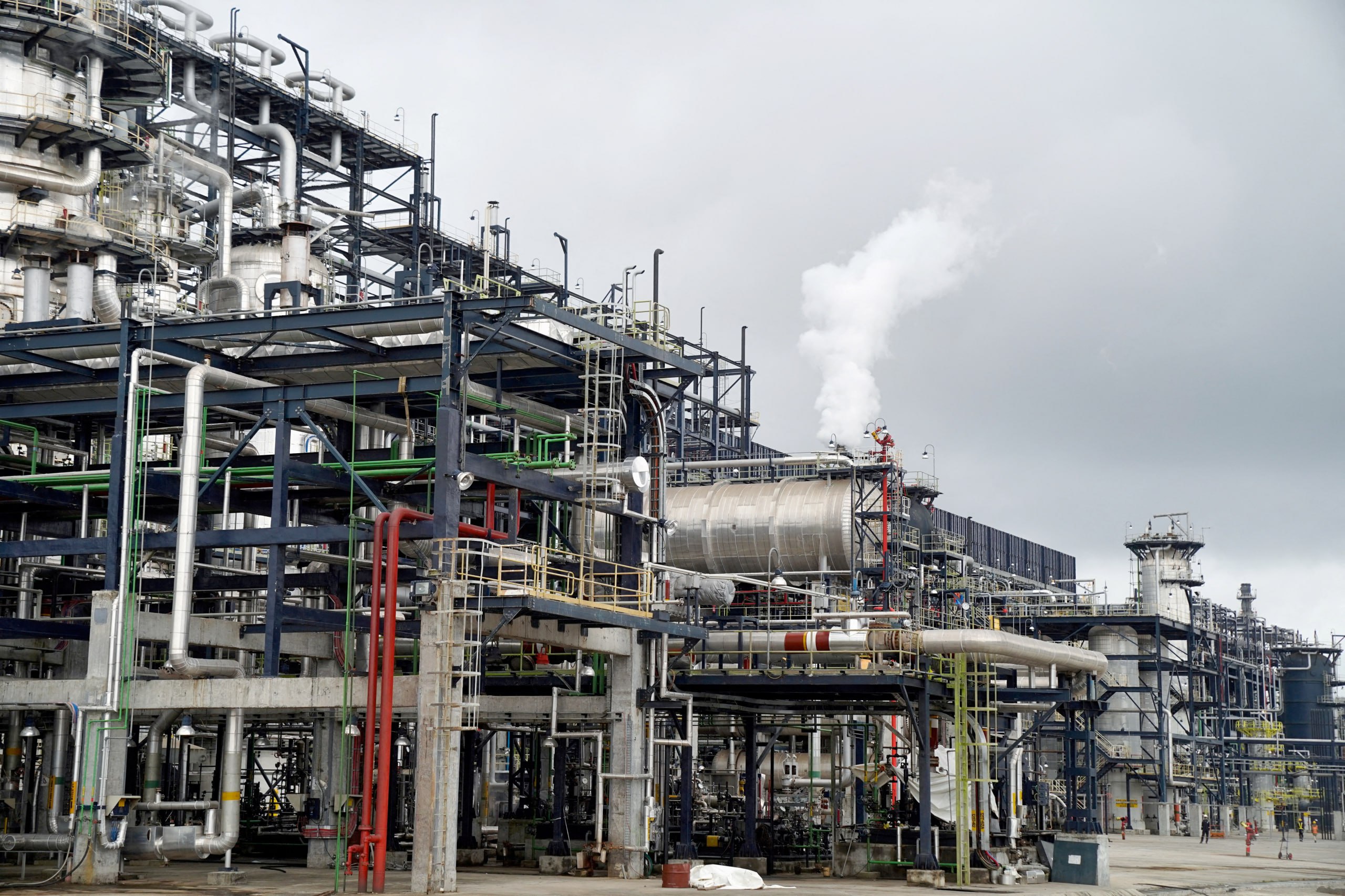In a historic leap towards energy self-sufficiency, the Dangote Petroleum Refinery, Nigeria’s flagship mega-project, has officially announced that its fuel production has surpassed the entire country’s daily consumption needs. This landmark achievement signals a transformative shift not just for Nigeria’s economy, but for the entire West African energy landscape.
According to a statement from Dangote Industries Limited, the refinery is now shipping more than 45 million liters of high-grade gasoline and 25 million liters of diesel daily. These figures comfortably exceed Nigeria’s domestic demand, marking the first time the nation—a major crude oil producer—has been able to meet its refined petroleum product requirements from a local source.
A representative for the company, owned by Africa’s richest man Aliko Dangote, hailed the development as a cornerstone for national economic security.
“Our refinery’s significant production capacities not only guarantee local supplies but also enhance energy security and reduce dependence on imports,” the representative stated. “This is a new era for Nigeria’s industrial and economic resilience.”
Policy Shift to Protect Local Industry
The refinery’s milestone was further bolstered by a recent policy move from the Nigerian government. President Bola Tinubu has approved the implementation of a 15% tariff on imports of gasoline and diesel. This measure is strategically designed to shield the burgeoning local refining industry from what industry leaders describe as “unfair competition.”
The Dangote Group welcomed the policy, framing it as a necessary step for nurturing domestic production. The tariff is expected to level the playing field, discourage the dumping of cheaper, subsidized fuels from abroad, and encourage further investment in Nigeria’s downstream oil and gas sector.
“Around the world, countries protect their local producers and industries from the threat of dumping,” the company’s representative noted, aligning Nigeria’s new stance with global best practices for industrial growth.
Broader Economic Impact
The combined effect of the refinery’s massive output and the protective tariff is projected to have a profound ripple effect across the Nigerian economy. Key anticipated benefits include:
· Stabilization of Local Fuel Supply: An end to the frequent fuel shortages and queues that have plagued the nation for decades.
· Foreign Exchange Conservation: A drastic reduction in the billions of dollars spent annually on importing refined petroleum products, which will strengthen the Naira.
· Job Creation: The expansion of the refining sector is expected to generate thousands of direct and indirect jobs, strengthening the country’s industrial base.
· Attracting Investment: The success of the Dangote Refinery serves as a powerful signal to international and local investors about the viability of large-scale industrial projects in Nigeria and across Africa.
The Dangote Refinery, situated in the Lekki Free Zone near Lagos, is the largest single-train refinery in the world. Its transition to exceeding national demand marks the culmination of a vision to pivot Nigeria from a crude oil exporter to a refined products powerhouse, with the potential to soon become a major exporter to neighboring African nations.

Leave a Reply